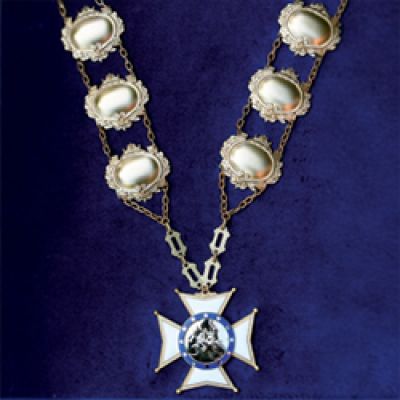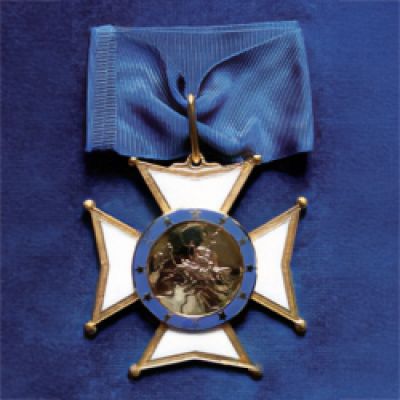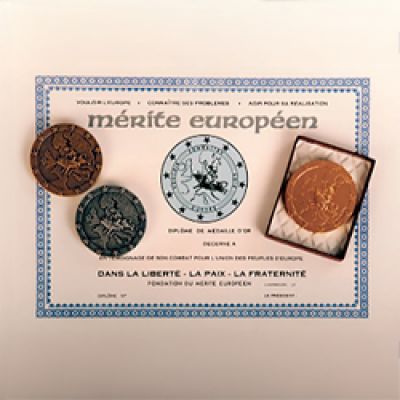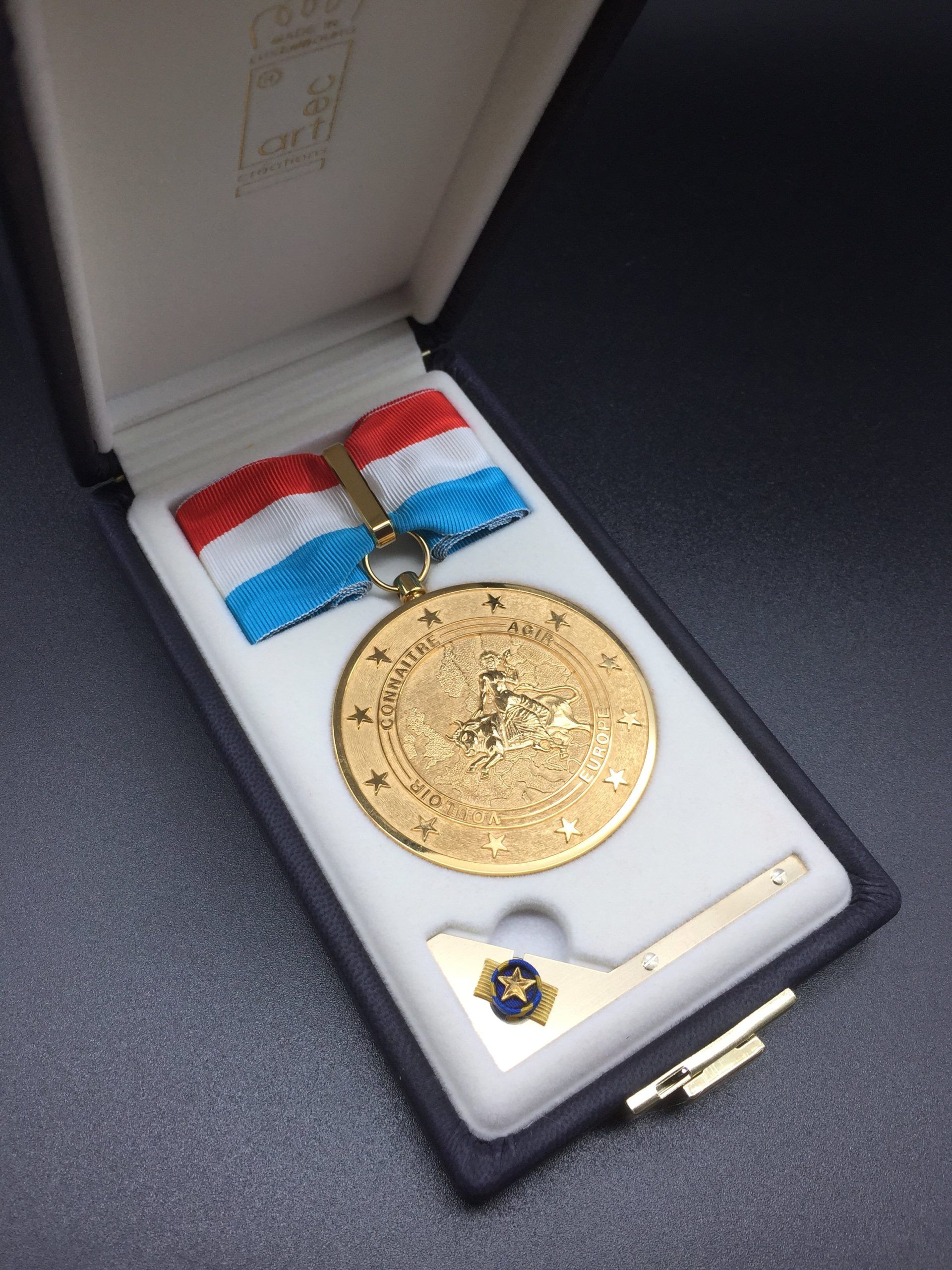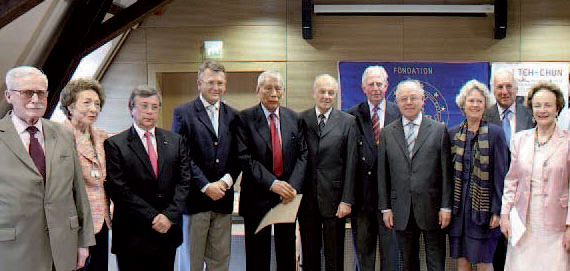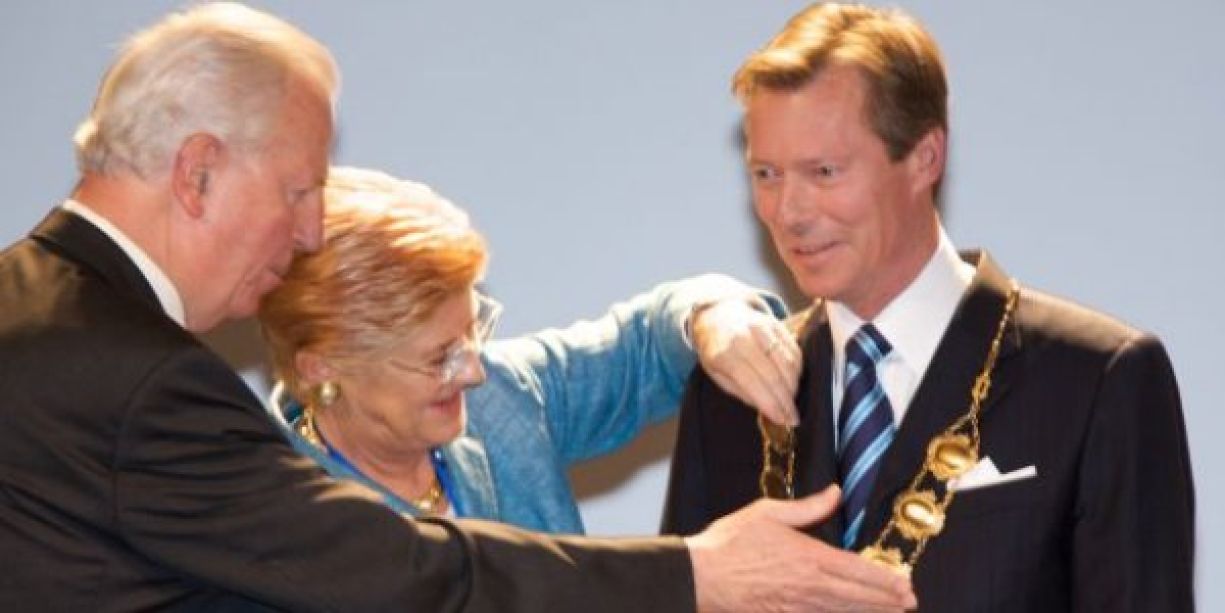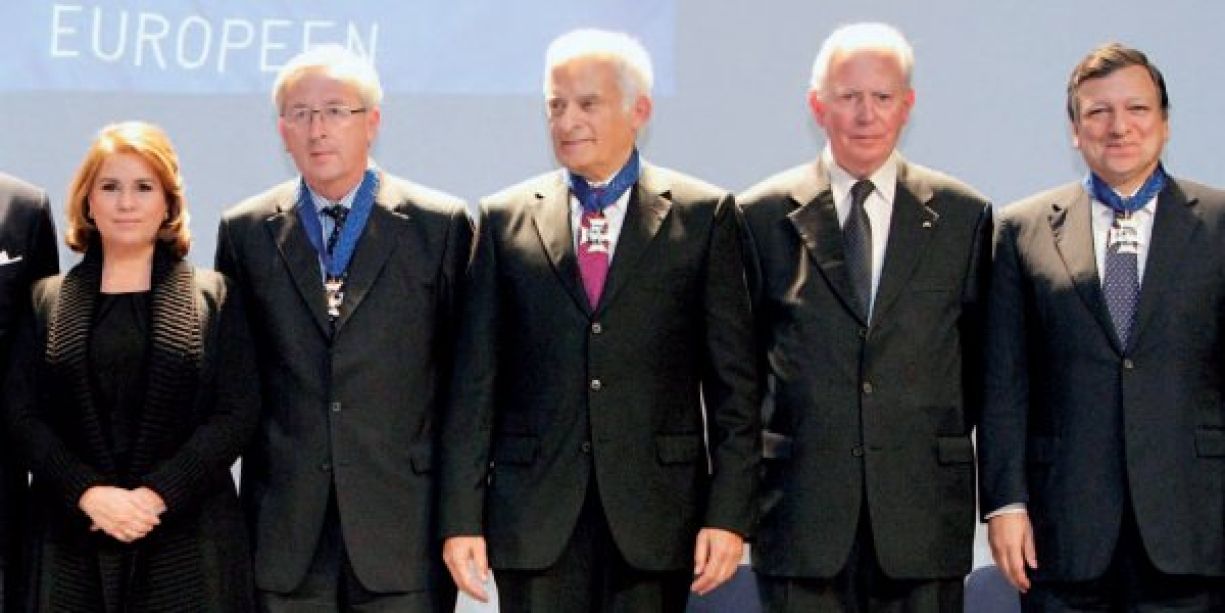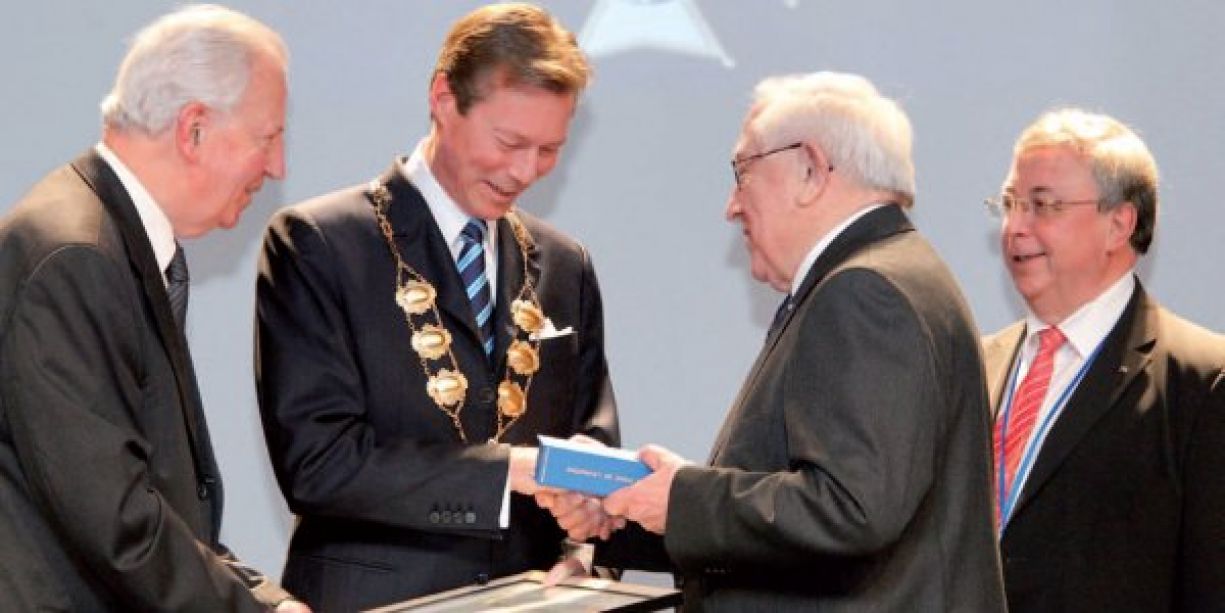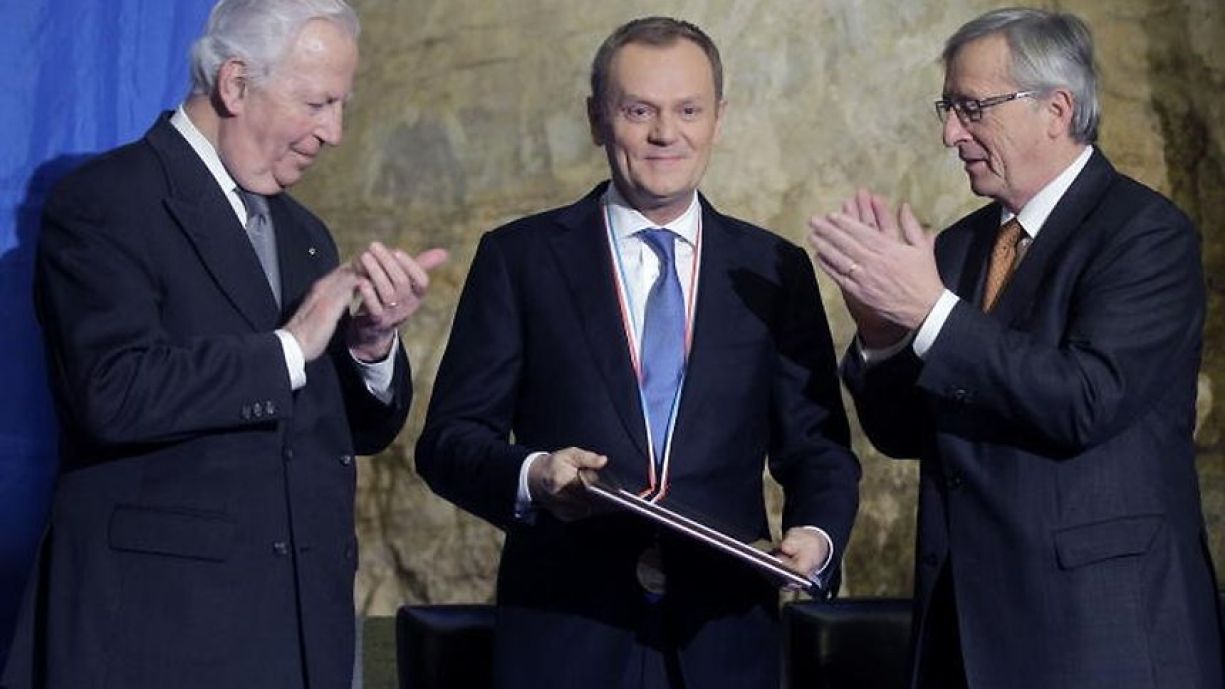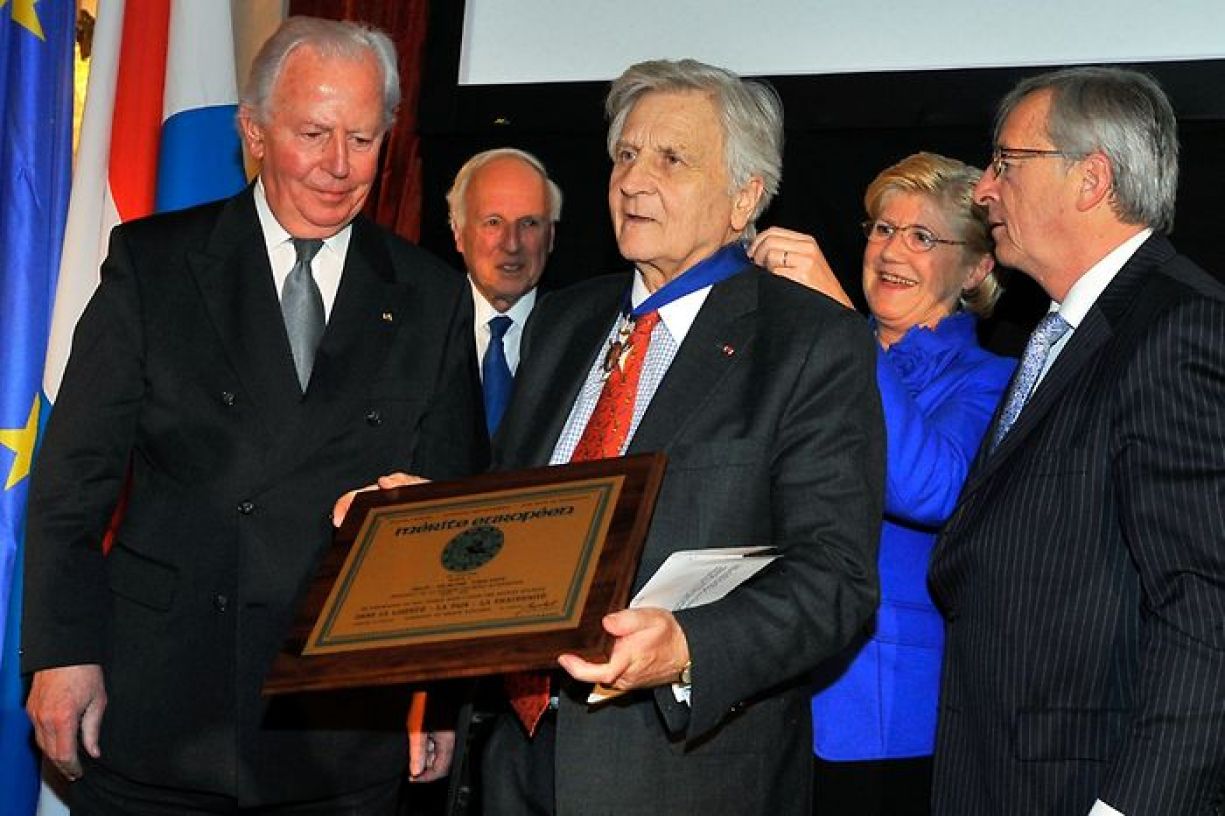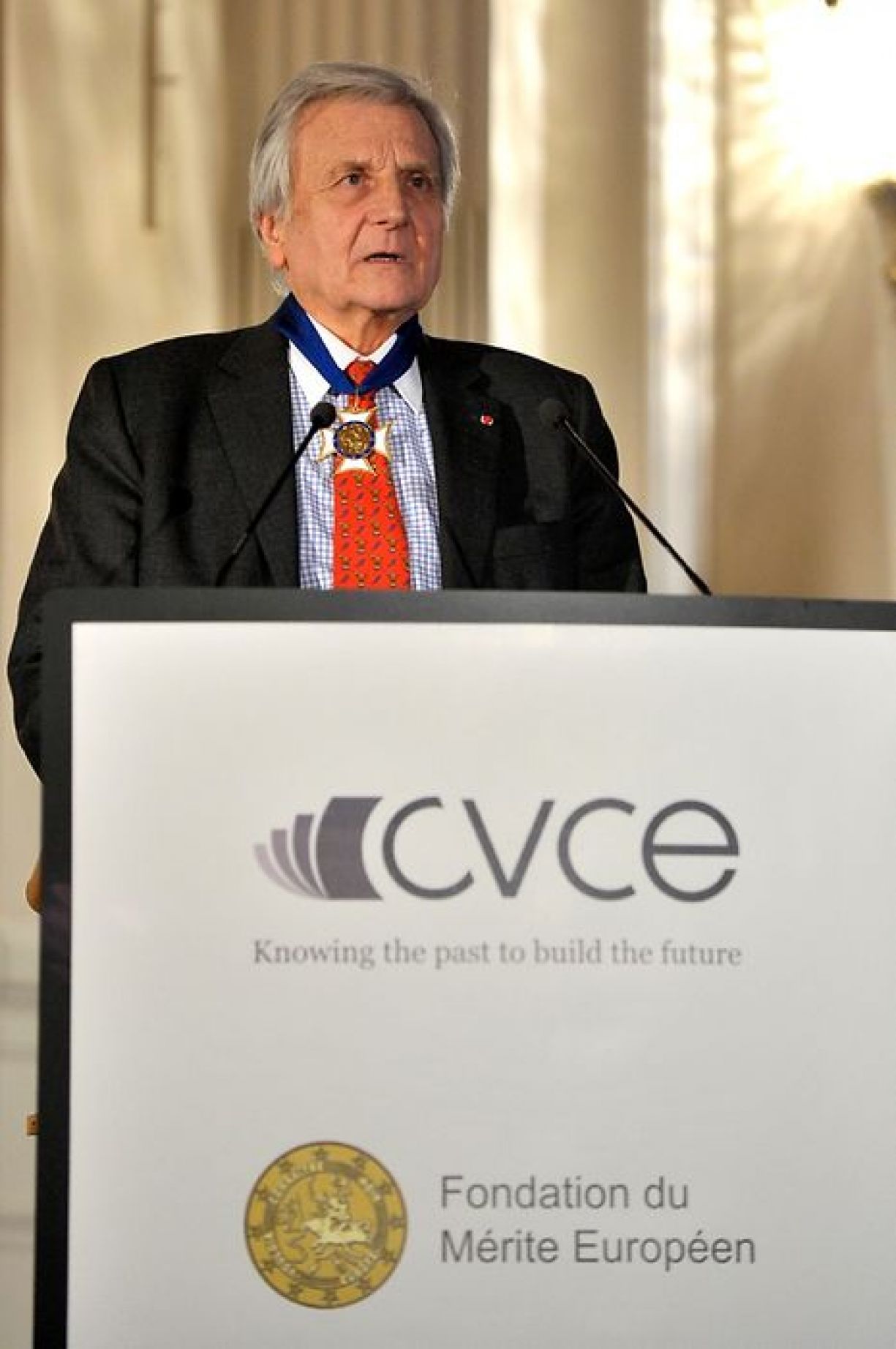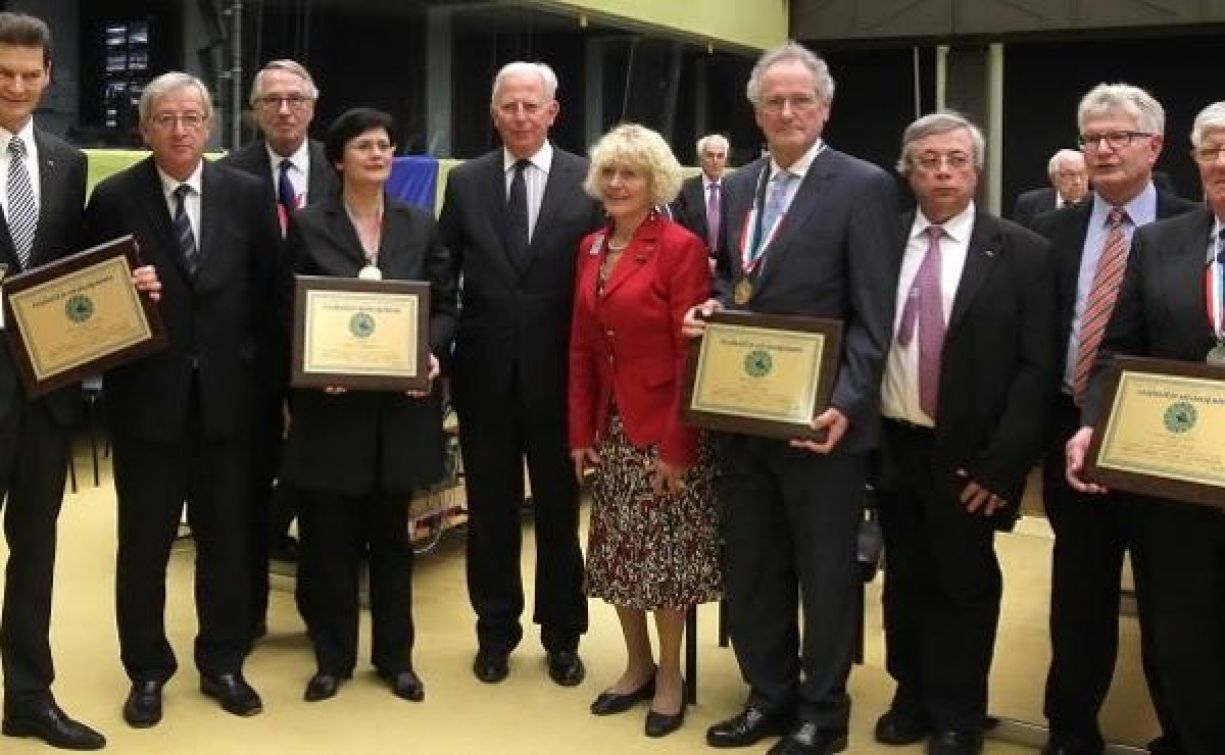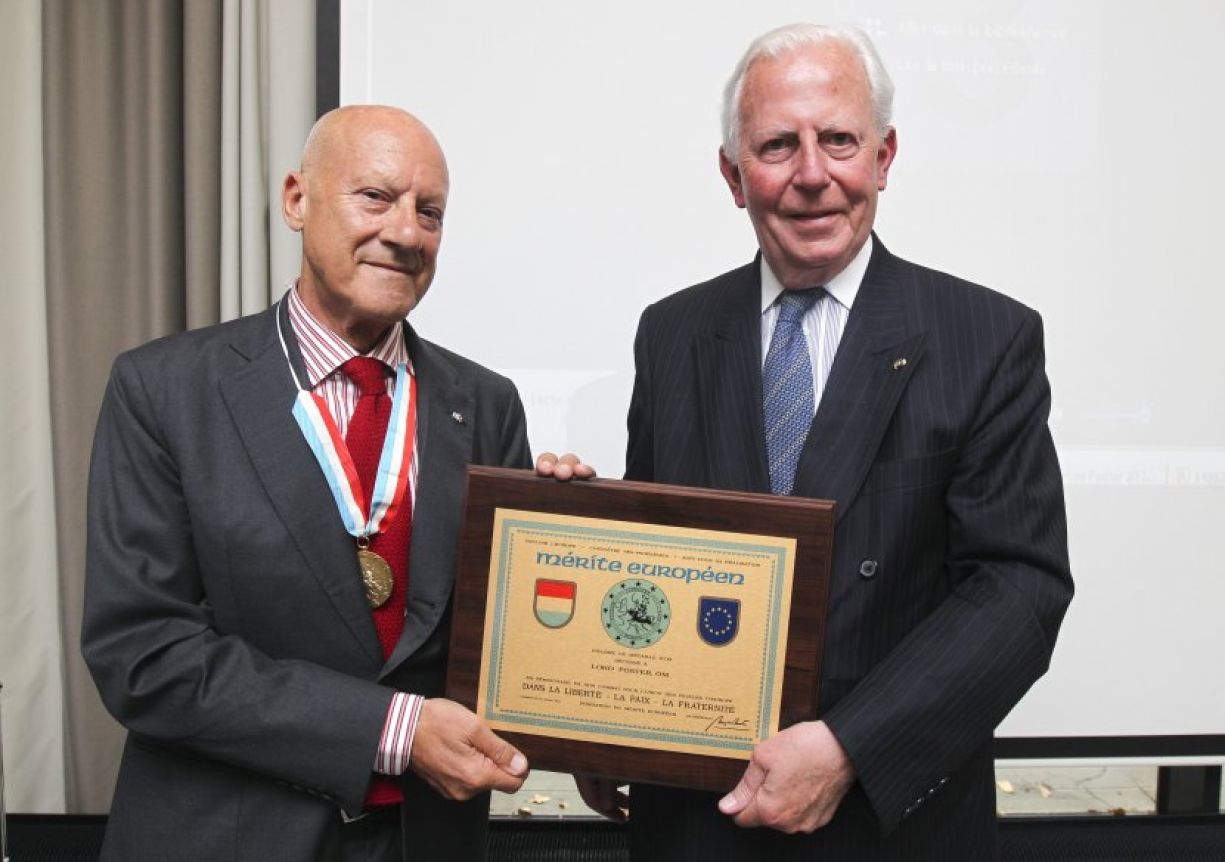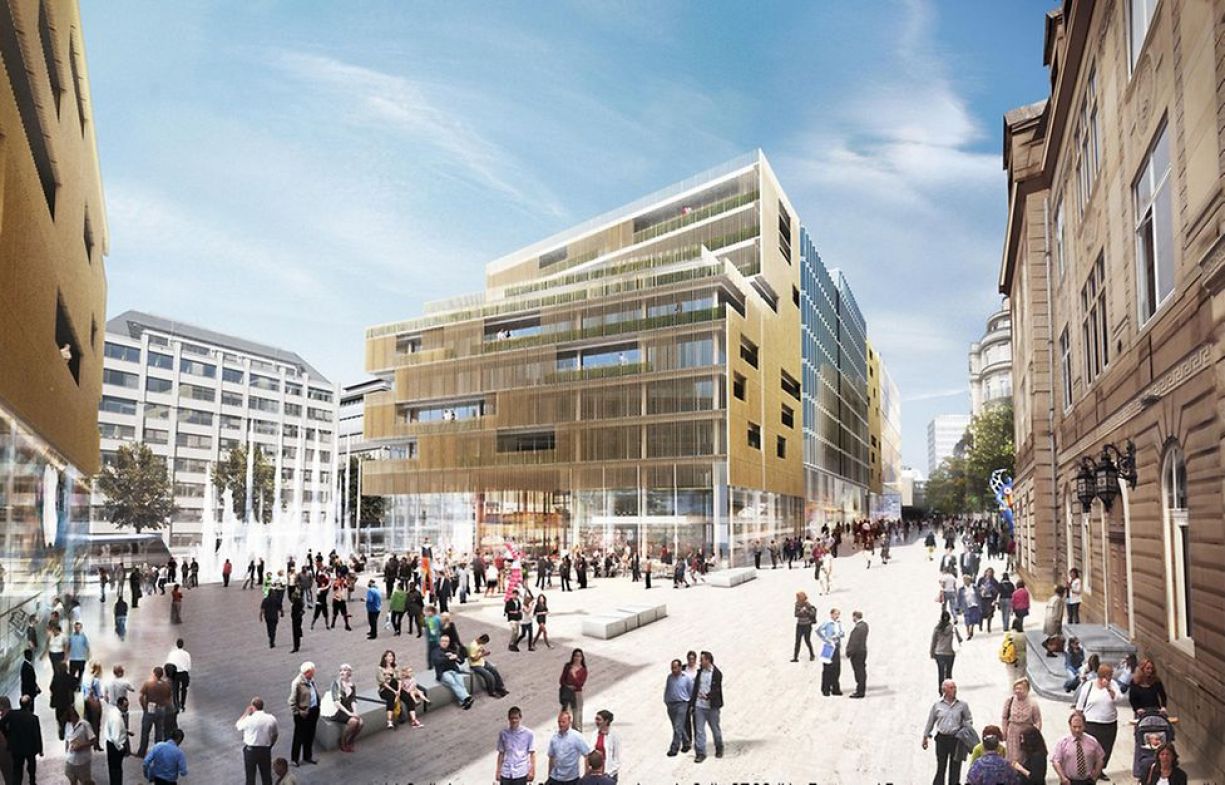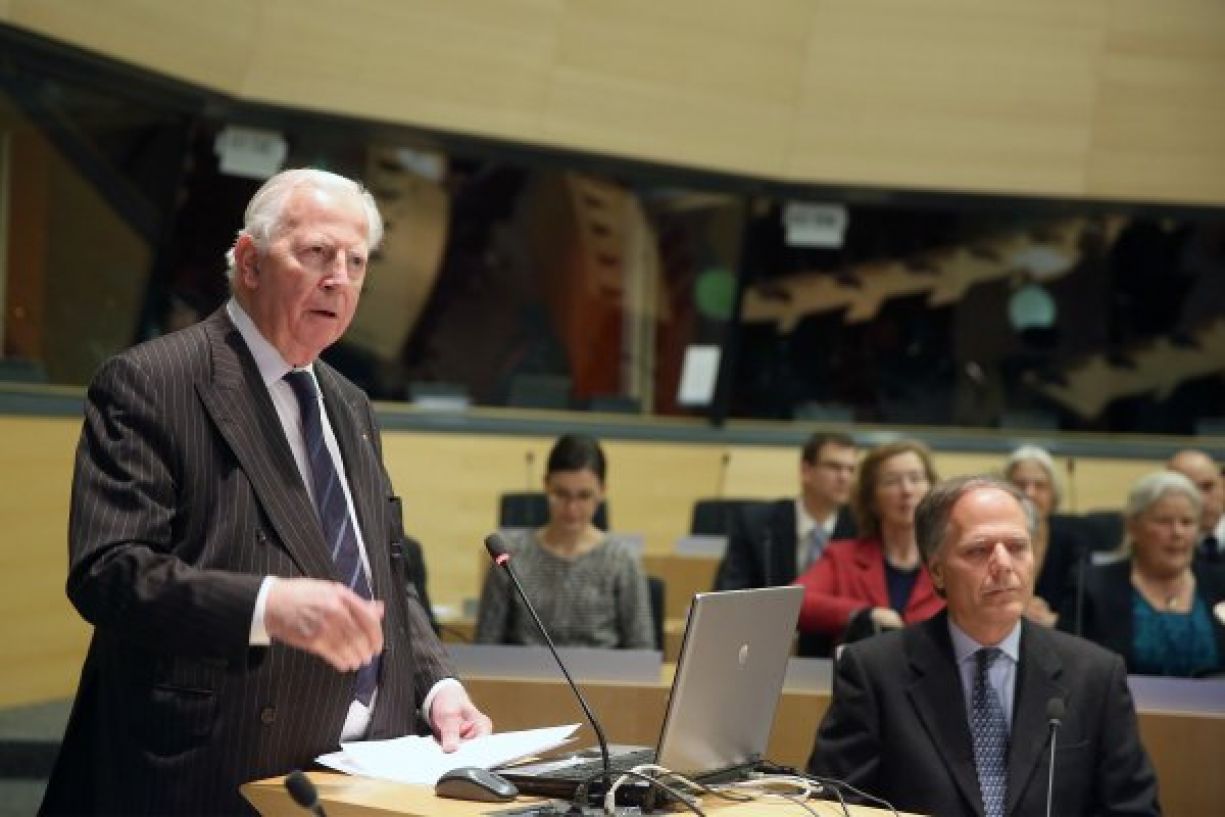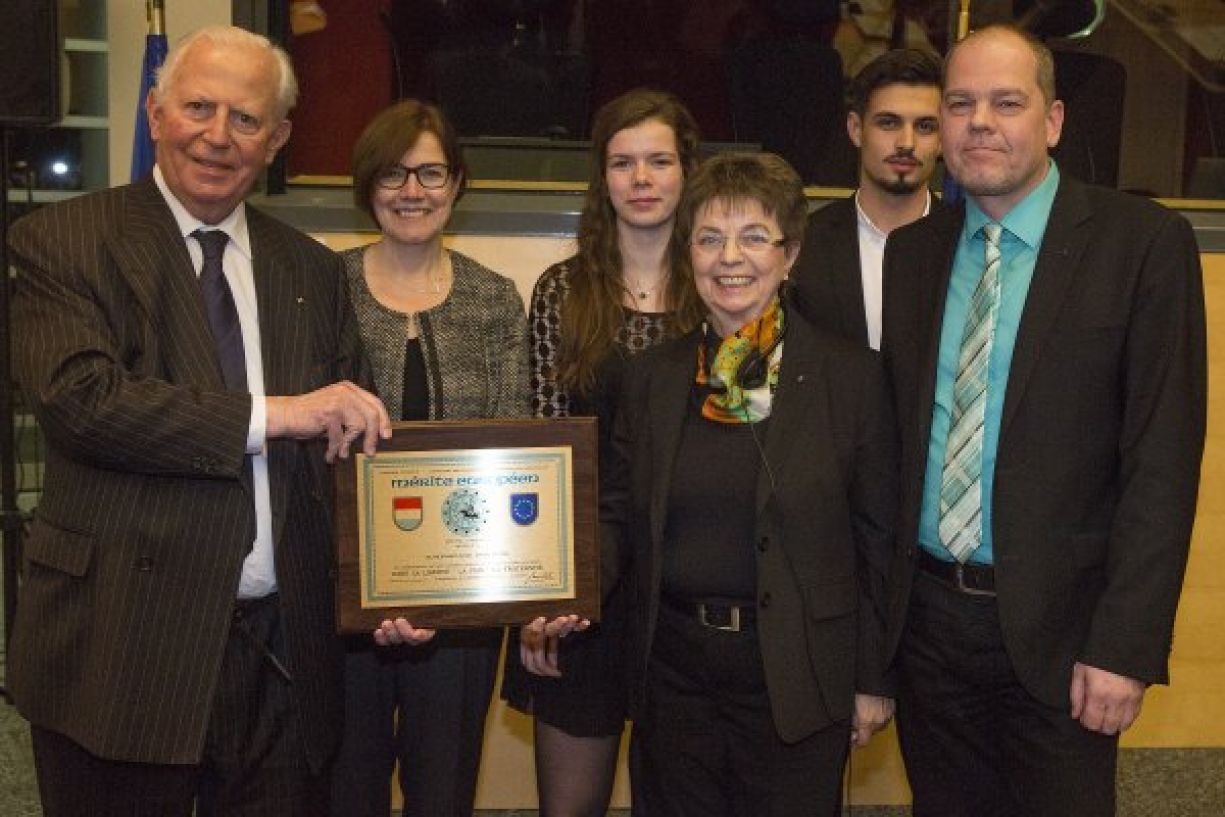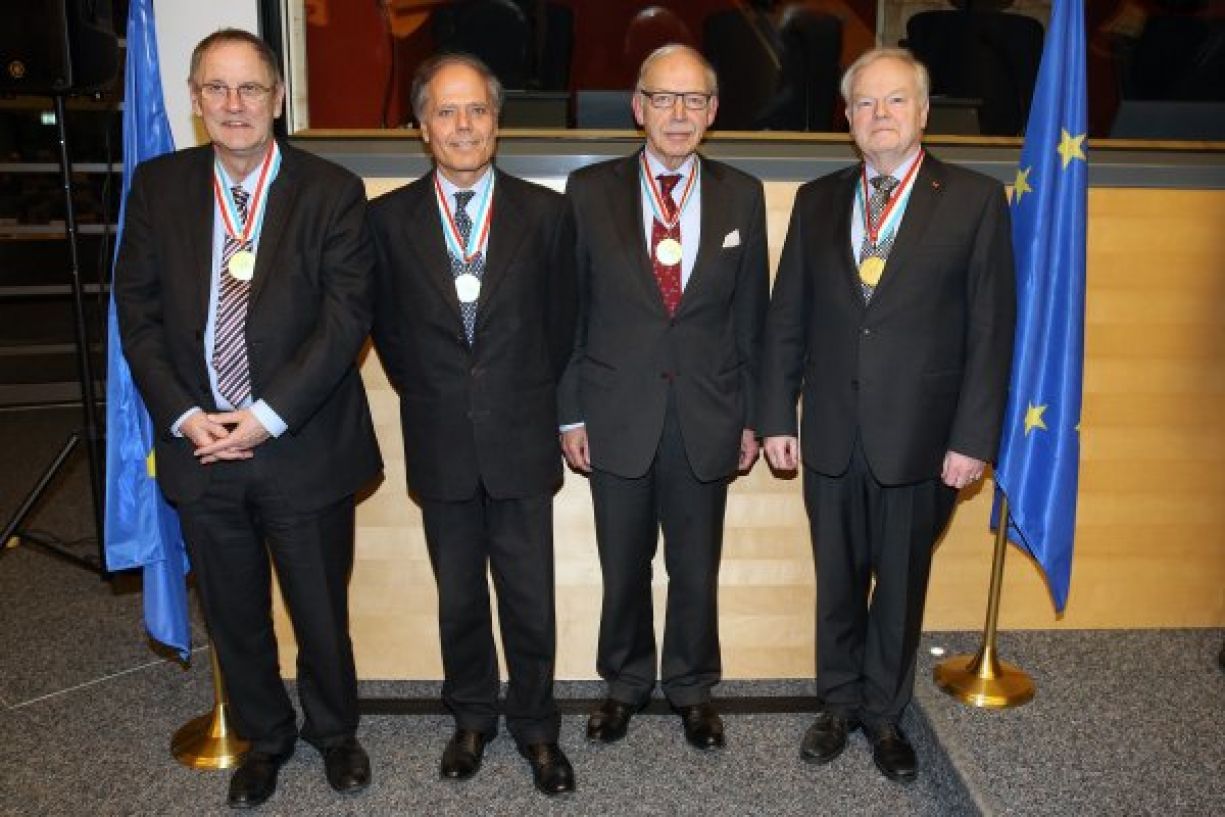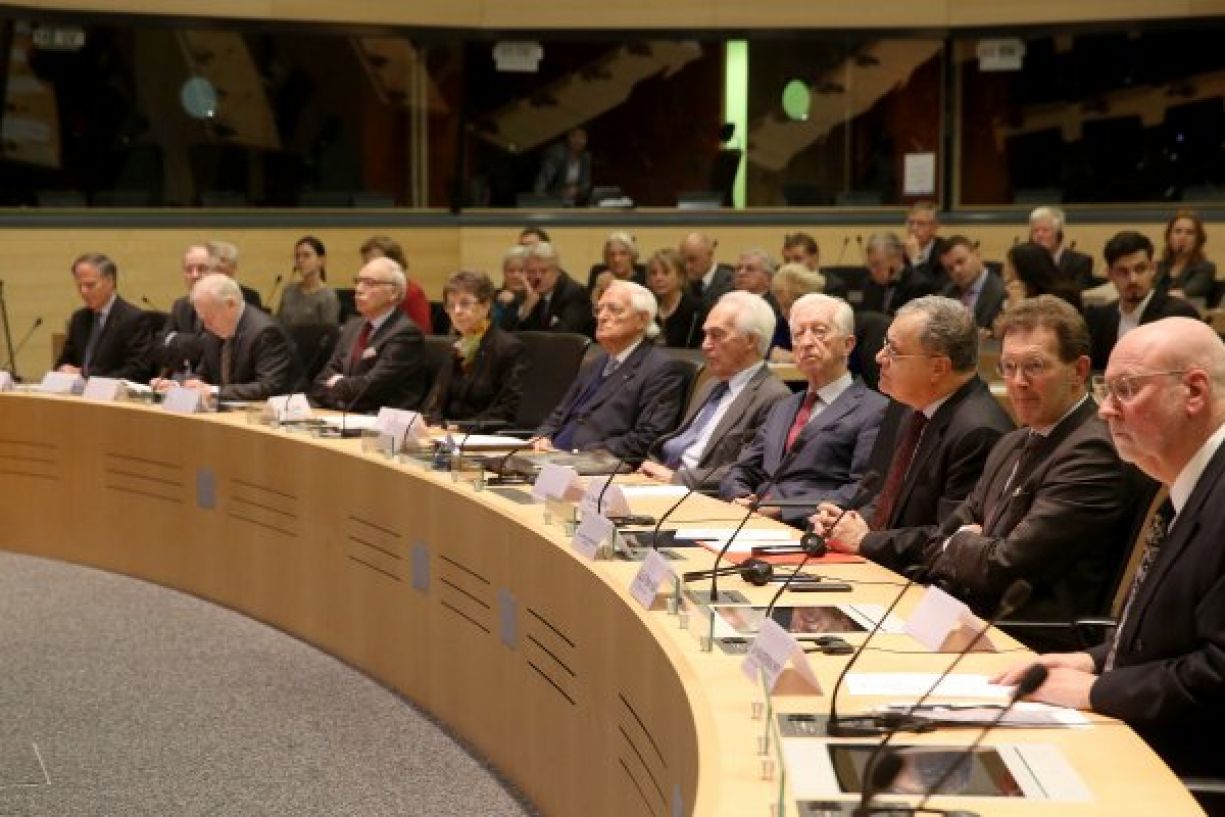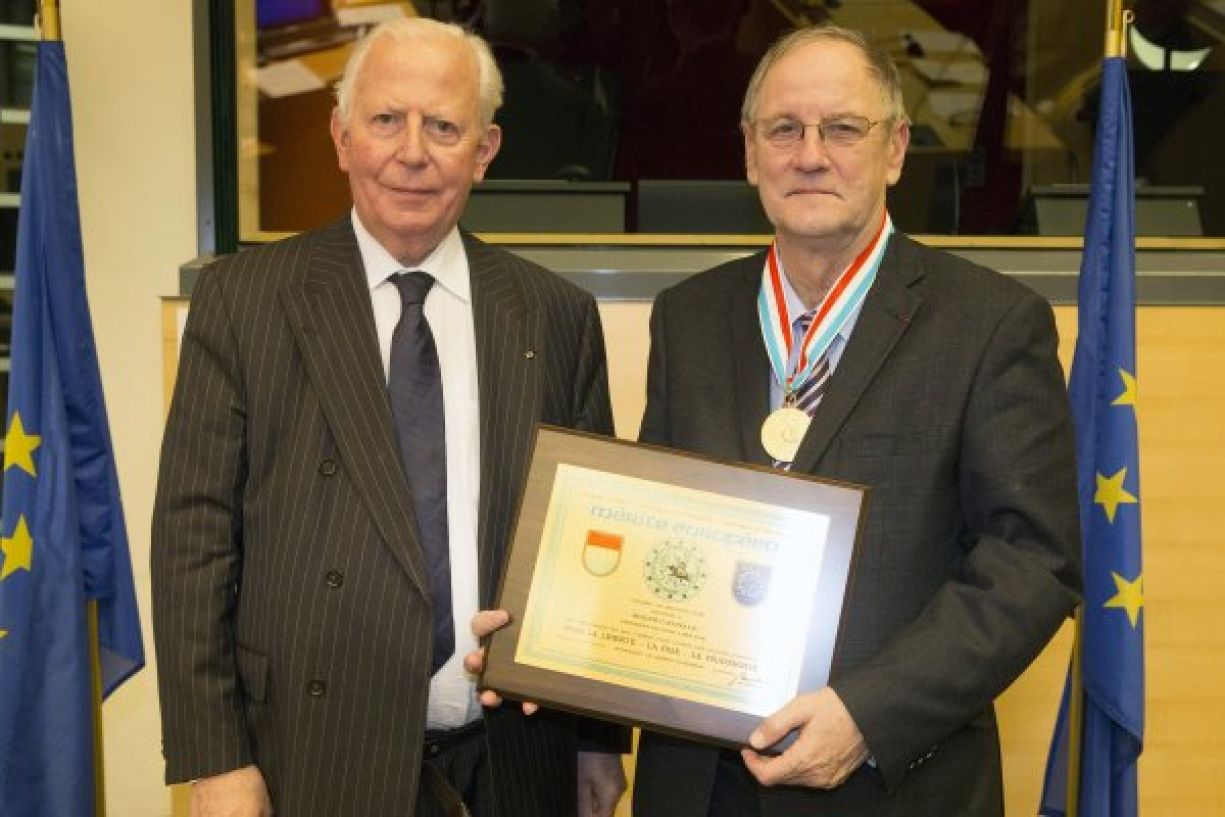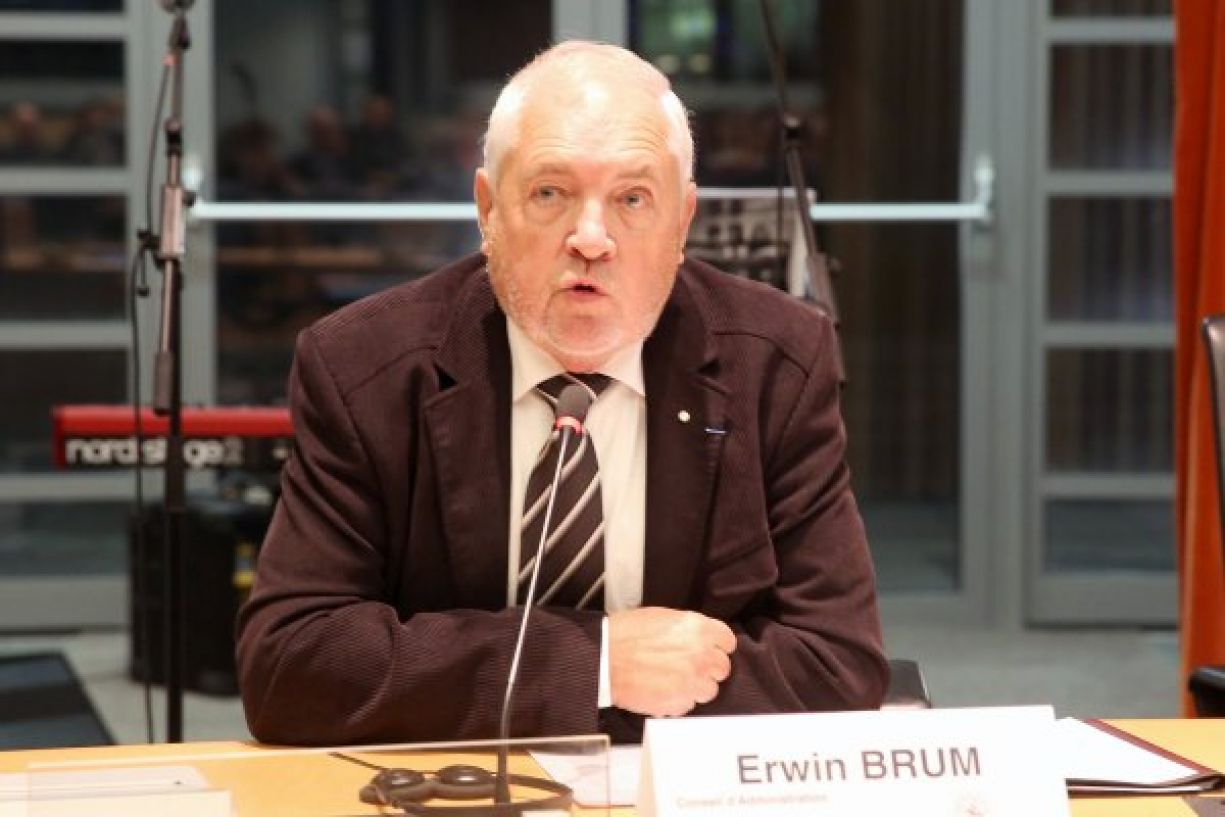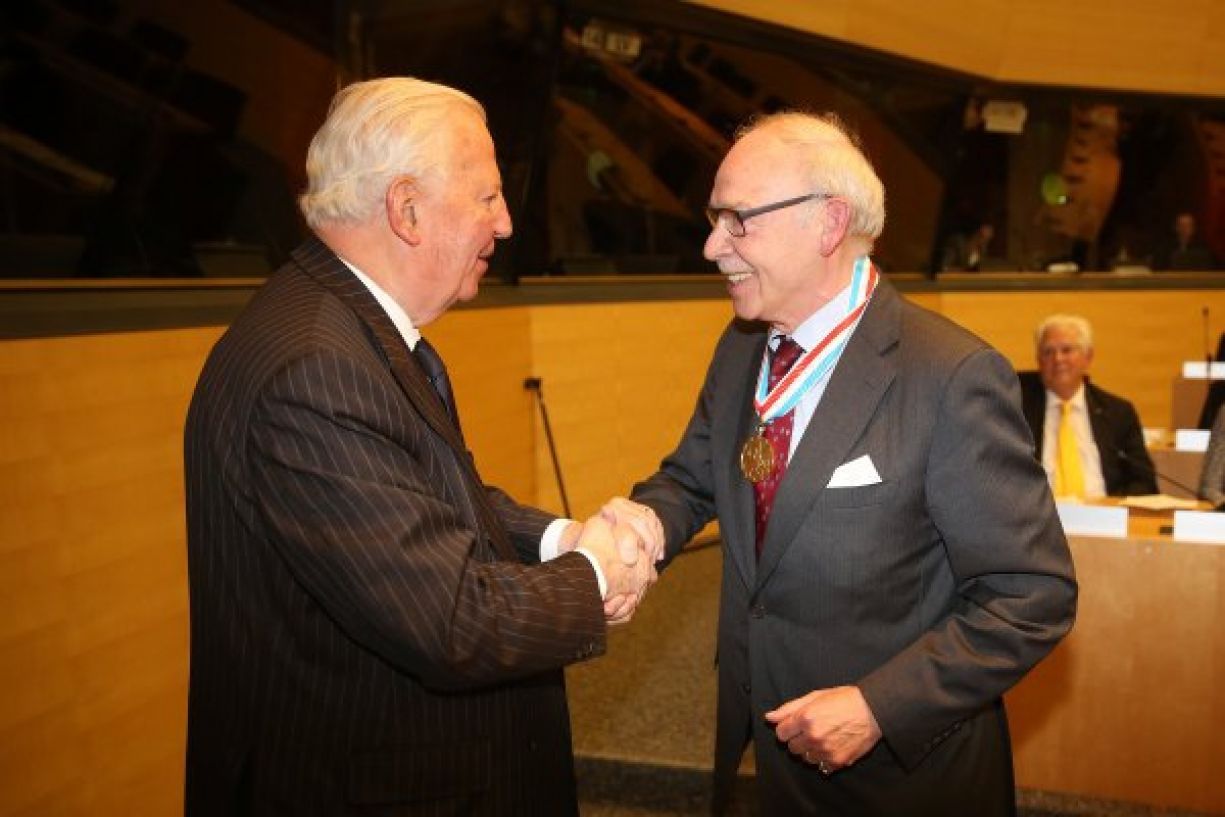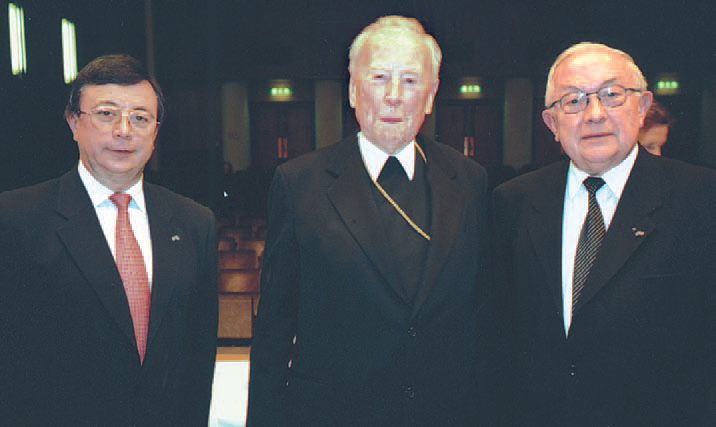
Cardinal Franz König, Mgr Fernand Franck
Award of the Mérite européen to His Eminence Cardinal Franz König, Emeritus Archbishop of Vienna. The Cardinal is flanked to his left by Bruno Turbang, President of the Executive Board, and to the right, by André Heiderscheid, President of the Fondation du Mérite européen’s Board of Directors.
Franz König (3 August 1905 – 13 March 2004) was an Austrian Cardinal of the Catholic Church. He served as archbishop of Vienna from 1956 to 1985, and was elevated to the cardinalate in 1958. The last surviving cardinal elevated by Pope John XXIII, he was the second-oldest and longest-serving cardinal worldwide at the time of his death.
Award of the Mérite européen to His Eminence Cardinal Franz König, Emeritus Archbishop of Vienna. The Cardinal is flanked to his left by Bruno Turbang, President of the Executive Board, and to the right, by André Heiderscheid, President of the Fondation du Mérite européen’s Board of Directors.
Franz König (3 August 1905 – 13 March 2004) was an Austrian Cardinal of the Catholic Church. He served as archbishop of Vienna from 1956 to 1985, and was elevated to the cardinalate in 1958. The last surviving cardinal elevated by Pope John XXIII, he was the second-oldest and longest-serving cardinal worldwide at the time of his death.

